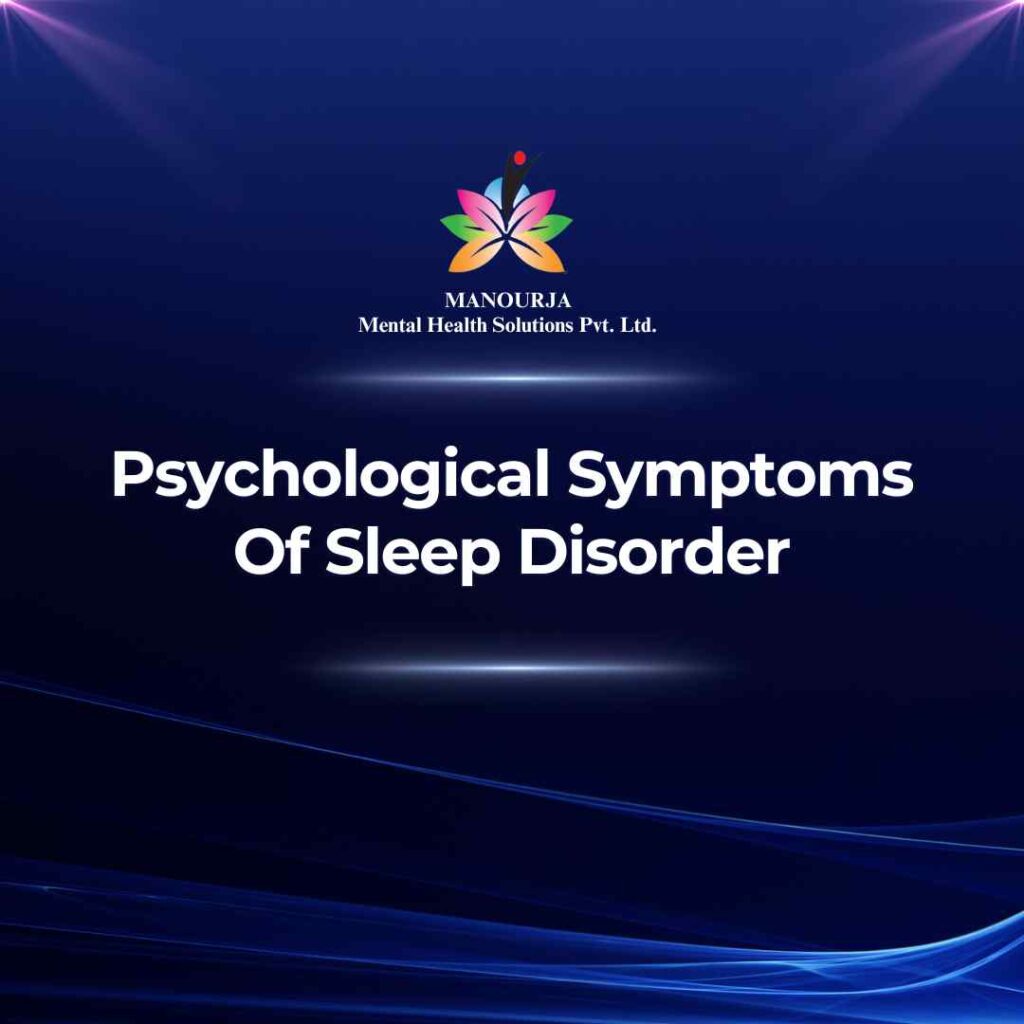Psychological Symptoms of Sleep Disorders

When struggling with a sleep disorder, the effects extend beyond just physical tiredness; they deeply influence our mental and emotional health as well.
Here’s a closer look at the psychological impact that poor sleep can have:
Irritability and Mood Swings
It’s not uncommon to feel unusually irritable or emotionally unstable after a bad night’s sleep. Those dealing with ongoing sleep disruptions often find themselves on an emotional rollercoaster, where patience wears thin and tempers flare over minor irritants.
The anxiety that comes with sleep disorders often creates a troubling cycle: worry about not sleeping leads to more sleeplessness and heightened anxiety the next night. This cycle can be particularly difficult to break and may require intervention to manage both the anxiety and the sleep issues feeding it.
There is a strong link between chronic sleep disruption and depression. The lack of restful sleep can lead to profound feelings of sadness, a loss of interest in life, and a pervasive sense of hopelessness. This isn’t just about feeling down; it’s a significant shift in mood that affects how one interacts with the world.
Cognitive Difficulties
Sleep is crucial for cognitive processes like thinking, learning, and memory. Without enough sleep, you might find it hard to concentrate or make decisions. Memory can also be affected, making it more challenging to remember details or manage tasks efficiently.
Lower Stress Tolerance
When you’re well-rested, your threshold for stress is higher, and you’re better equipped to handle challenges. Sleep disorders can lower this threshold dramatically, making everyday situations feel insurmountably stressful.
Emotional Detachment
Ongoing sleep problems may lead to feelings of detachment or disconnection from others. This can result in withdrawing from social activities, feeling less empathy, and struggling to maintain personal relationships.
Sleep deprivation impacts the frontal lobe of the brain—the area responsible for decision-making and self-control. This can lead to poor judgment and impulsive behavior, further complicating one’s life and sometimes leading to regrettable decisions.
Paranoia and Suspiciousness
In severe cases of sleep deprivation, individuals may start to experience paranoia or undue suspiciousness about others’ motives, which can strain personal and professional relationships.
Extreme cases of sleep deprivation, especially in conditions like severe insomnia or narcolepsy, might lead to hallucinations. These are not just mere figments of the imagination—they are vivid, often disturbing, experiences that can be visual, auditory, or sensory in nature.
Worsening Pre-existing Mental Health Conditions
For those already managing mental health issues, sleep disorders can make symptoms worse and recovery more difficult. Whether it’s bipolar disorder, schizophrenia, or anxiety, poor sleep can complicate the management and effectiveness of treatment for these conditions.
Recognizing and addressing the psychological symptoms of sleep disorders is crucial. Treatment might include therapeutic approaches such as cognitive-behavioral therapy for insomnia (CBT-I), medications, and lifestyle adjustments aimed at improving sleep hygiene. For those experiencing these symptoms, seeking help from a healthcare provider can lead to significant improvements in both sleep and overall well-being.
At MANOURJA, we believe in the transformative power of counseling. Our experienced therapists offer a safe and supportive space where you can explore your thoughts, emotions, and challenges. Through personalized counselling sessions, we’ll work together to develop coping strategies, build resilience, and achieve lasting positive change. Discover the path to a healthier, happier you with MANOURJA counselling services.
MANOURJA Rehabilitation Services
At MANOURJA, we’re dedicated to helping you in rebuild your life, after difficult times. Our rehabilitation services focus on understanding what you need to move forward, whether you’re recovering from addiction, trauma, or any psychological – social challenges. We create personalized plans, that are all about helping you, regain your strength and find hope again. With a caring team by your side, you’ll have the support to make real progress and take steps toward a brighter, healthier future.
